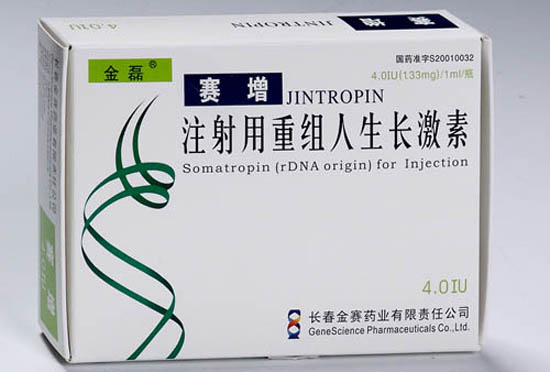
China announced the revocation of the GeneScience Pharmaceutical license to manufacturer Jintropin brand human growth hormone. This represents a major success in efforts towards the internationalization of steroid and doping law by the United States. The U.S. federal government indicted CEO Lei Jin and GeneScience Pharmaceutical Inc. last fall as part of Operation Raw Deal (“China Cracks Down on Drug Companies,” June 19).
One of the drugmakers that China named Wednesday was GeneScience Pharmaceutical, which is based in northern China and run by an American-educated executive. Last September, a federal grand jury in Rhode Island indicted the company for illegally distributing millions of dollars in human growth hormones in the United States. The company had denied the allegation, but its American agent pleaded guilty in February to conspiracy to distribute H.G.H.
It certainly is no coincidence that on the same day, the U.S. Attorney’s office in Rhode Island announced the federal government would get to keep approximately $2.7 million dollars seized from U.S.-based branches of Chinese bank accounts belonging to GeneScience.
GeneScience (manufacturer of Jintropin HGH) was the only company officially named by Chinese authorities as having their license revoked. We suspect the other two Chinese pharmacuetical companies affected were Neogenica Bioscience (manufacturer of Revitropin IGF-1 and Hypertropin HGH) and Kexing (manufacturer of Fitropin HGH).
But Chinese authorities refused to take responsibility for illegal distribution of human growth hormone and anabolic steroids in the United States; they suggested the United States should be responsible for the high demand for performance enhancement drugs and their illegal distribution and use.
Officials also challenged claims by the United States that China accounted for 99 percent of the illicit performance-enhancing drugs in the largest drug-enforcement action in United States history, known as Operation Raw Deal, last year. The United States had asked China to investigate 37 drug manufacturers.
If China’s ingredients were used to produce performance-enhancing drugs and illegally sold after being legally exported, the importing countries should bear the responsibility, Wu Zhen, the deputy head of the State Food and Drug Administration, said at a news conference. Most of such products were exported with company contracts, export licenses and warrants from the importing countries, and their use was clearly stated.
Nonetheless, China acted on information provided by the U.S. as part of Operation Raw Deal and shutdown many steroid powder sources and has now shutdown another 125 manufacturers, distributors and retailers of performance-enhancing drugs based on information provided by the U.S. including GenSci (“China enhances attack on doping agents production, sale ahead of Olympics,” June 18).
Of the 125 enterprises facing punishment, 93 were retail pharmacies.
Eighteen distributors, half found in Anshan City, Liaoning Province, had their trade licenses revoked, Wu said.
Three manufacturers who had sold erythropoietin or human growth hormone — both used to enhance athletes’ performance — to unauthorized wholesalers were ordered to stop production.
The rest received administrative punishments, said Wu.

About the author
Millard writes about anabolic steroids and performance enhancing drugs and their use and impact in sport and society. He discusses the medical and non-medical uses of anabolic-androgenic steroids while advocating a harm reduction approach to steroid education.

Leave a Reply
You must be logged in to post a comment.